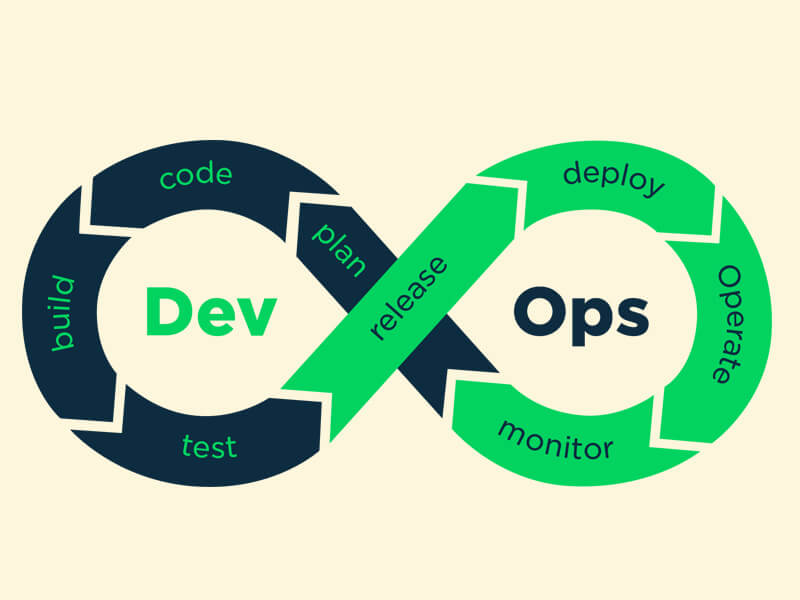June 22, 2020
By:
Faisal Khwaja

With the increasing digitalization of the workforce in a corporate business whether it is small or large, the amount of data and various applications to be stored significantly increases. All of these applications are challenging to be managed properly, so what options do we have? The foremost option to secure and manage sensitive data is the incorporation of Private Cloud into the system.
With the increasing digitalization of the workforce in a corporate business whether it is small or large, the amount of data and various applications to be stored significantly increases. All of these applications are challenging to be managed properly, so what options do we have? The foremost option to secure and manage sensitive data is the incorporation of Private Cloud into the system.
What is a Private Cloud?
Private cloud refers to one of the kinds of cloud computing which provides services to a small or limited number of people through the internet or other networks that are connected internally and privately to the corporate system.
A private cloud is also known as a corporate or internal cloud that delivers various controlling panels and tools to customize miscellaneous resources to benefit the entire infrastructure of the company. A private cloud is responsible for the smooth working of the systems for a single organization or company instead of multiple organizations as done by the public cloud.
Advantages of Using Private Cloud
Private cloud offers a number of benefits which include; virtualization, elasticity, and scalability, however; there is much more to private cloud computing. Several other benefits of private cloud computing are mentioned below.
- Data Remains Impregnable
According to the law, the protection of the personal information of the customer is necessary for every business and the breaching of this information may lead to menacing consequences. However, with the usage of private cloud, the privacy of the customer's personal information is maintained by limiting the access of the people. All the on-site servers are handled by the IT team of the company, giving no leverage or opportunities to impregnate the data.
- Infrastructure can be Customized
Businesses come in numerous shapes and sizes, therefore; you have to look for that infrastructure that can fit the requirements of every business whether small or large. Private cloud offers this kind of customization where you can adjust the infrastructure according to the requirements of the business such as the storage and management of the data, internet connection, and various internal networking systems.
- Enhanced Supervision and Competence
With a controlled number of people supervising the data, it can become easier to assess the damages and vulnerabilities operating in the system. By doing this, you can augment the efficiency of the operating systems by making certain changes whenever there is a need for them. The IT team working in your company can make use of the newer, innovative, and well-defined analytics to make sure that your company does not become the victim of setbacks, bottlenecks, or worse cybercrime.
- Continuity of the Business is Ensured
To be ahead of everyone else in the business hub, you need to own an infrastructure that carries out all the required services of your business. If you depend on an outside provider or public cloud computing, no one can give a guarantee about the provider. He/she may leave in the middle of the business, giving you major setbacks at the crucial point of your business. Thus, if you have your infrastructure, it can assure that your business may continue to prosper.
Disadvantages of Using Private Cloud
Everything in this world comes with pros and cons, thereby; where private cloud offers several indispensable benefits it also has some impediments.
- High Building Costs
The incorporation of your own infrastructure requires large sums of capital from your pocket. It includes several costs that add up to millions such as; the costs of installing the personnel and the costs of upgrading the assimilated equipment, hardware, and software. These are the costs for on-site fixation of private cloud infrastructure. However, if you want to install it beyond the premises of the company, the costs for all the resources may shock you.
- Utilization of the Resources is Below Average
The utilization of the private cloud doesn't match up with the costs which were used for the implantation of the infrastructure along with all the other necessary resources. We can say that there is under-utilization of the resources which impede the smooth running of the whole system.
- Storage Limit can be Reached
Private cloud computing infrastructure requires several hardware resources that must be appropriately espoused for improved proficiency. With this connectivity to several networks, the storage limit of private cloud computing infrastructure can be reached which can prove to be a tailback for your data storage.
Conclusion
Despite the disadvantages of private cloud computing, it offers more benefits to its users. All it needs is proper azure training for the better working of the private cloud and to minimize the disadvantages associated with it. Implantation of private cloud computing can be referred to as a one-time investment, thus; all these disadvantages shouldn't diminish your effort to build a secure environment for the users.
June 22, 2020
By:
Faisal Khwaja


